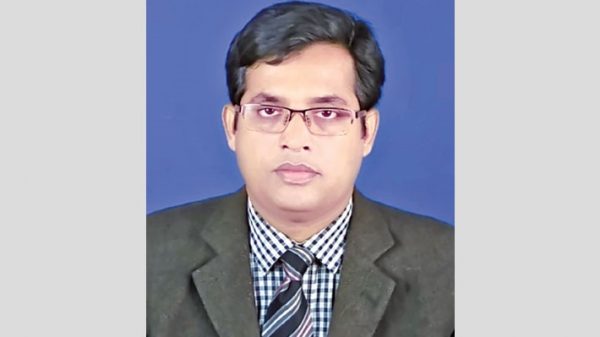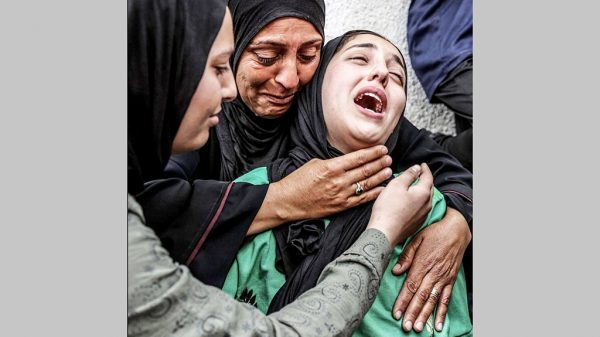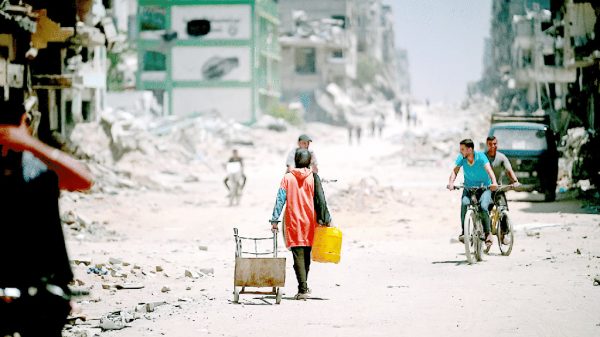Declaring Vaccine a Global Public Good

Pranab Kumar Panday:
The notion of a ‘global public good’ is an economic thought that, at its simplest, applies to goods, innovations, strategies or problems with consequences that might apply to anyone, anywhere. Despite popular belief, this has nothing to do with good or negative results since the term “good” applies to products instead of something that is helpful or positive. As far as welfare is concerned, this usually involves programs, policies and resources that have a real public health impact, which is always beneficial, even though the gains or costs will not be equal across the country. From this perspective, the Covid-19 vaccine could certainly be regarded as a global public good as it has a positive impact on the global population’s health in terms of protecting them from being contaminated by the Coronavirus.
Bangladeshi Prime Minister Sheikh Hasina, in her pre-recorded video speech at the opening plenary of the four-day annual conference of Boao Forum for Asia (BAF) titled “A world in change: Join hand to strengthen global governance and advanced Belt and Road Initiatives (BRI) Cooperation” raised a demand to declare Covid-19 vaccine as a global public good. Considering the enormity of the catastrophe triggered by the Corona pandemic, the whole world community is uncertain about the longevity of this pandemic as there is hardly any scientifically proven information that could tell us the deadline of an end of the pandemic. While dealing with the pandemic, world leaders have understood that no government could fight independently against this lethal virus irrespective of their economic condition.
The Coronavirus has posed two different challenges for the world. The first is the public health-related upheaval, as there is no specific drug that can be used to treat the COVID-19 infected patients. Therefore, physicians worldwide have been providing treatment to patients using different drugs on a trial and error basis. We have seen that one drug was found useful for treating Corona patients at some point in time, while that drug became useless after some time due to mutation of the virus. Therefore, scientists, physicians and public health experts worldwide have been working tirelessly to identify the root of the virus and a specific drug to treat Corona patients.
The second challenge is related to the economic impact. Most of the world’s giant economies have been struggling to deal with the crippling effect of the lethal virus. The main underlying cause is that one of the best-known mechanisms of restraining the contamination rate is the enforcement of lockdown to keep people at home. The government is also compelled to close all offices, mills, factories, and transports that have negatively impacted the country’s economic growth. The situation is more difficult in underdeveloped and developing countries like Bangladesh, where the government does not have adequate resources to support the citizens during the extended lockdown period. Therefore, they are forced to maintain a balance between the life and livelihood of the population. In such endeavours, they are, sometimes, compelled to relax lockdown in some sectors considering the miseries of the poor people.
Therefore, the need is felt by the world leaders to fight the pandemic collectively. Both regional and global cooperation is required during the worst ever time of the century. We have already seen that different countries came forward with assistance to support the worst affected countries by the lethal virus. Countries that have managed to overcome the devastation, for the time being, are helping other countries that are facing turbulence. In such a manner, governments worldwide have been helping each other for over one year and few months. Recently, we have seen that several countries, including China, which is considered the arch-rival of India, have helped the Indian government and people with Oxygen, medication, and essentials commodities required to deal with the pandemic as the second wave of Coronavirus has hit the country hard.
Under these circumstances, public health experts have felt the need to vaccinate people worldwide along with enforcement of lockdown and complying with Covid-19 safety protocols to restrain the contamination of the deadly virus. We have learnt that several companies have developed vaccines worldwide to check the contamination though none of the company has yet claimed that its vaccine would offer 100 per cent protection against Coronavirus. Scientists and the public health experts are getting in trouble as the virus is frequently muting. After mutation, they are becoming more powerful than previous strains. Therefore, the virus could manage to infect people bypassing the security protocol of the vaccines. Of course, different studies have confirmed that the severity and fatality rate has reduced significantly among those who have been infected after taking vaccines. Another important thing is that the vaccine could provide safety for six to nine months only. Despite that, there is urgency among all the world citizens to get vaccinated to protect them from contamination for at least six to nine months.
Having observed the overall management process of vaccination so far, it can be claimed that there is clear demarcation between rich and poor countries. Since the government of the respective countries is buying vaccines from the producing countries and companies, countries with strong economic capacity are occupying the majority of the doses while the developing countries are remaining out of the coverage. Moreover, there are certain technical issues with vaccines of Pfizer and Moderna as those vaccines require to be kept at minus 70% temperature, which is not possible in countries like Bangladesh. Therefore, the South Asian countries are mostly relying on the Oxford-AstraZeneca vaccine, which is easy to manage. Though Bangladesh paid the price of 30 million doses in advance, they could receive only 7 million doses from Serum Institute India. Due to the deterioration of the Covid-19 situation in India, the government imposed a bar on the Serum Institute to export vaccines. It is worth noting that the WHO has developed a guideline to ensure equitable distribution of vaccine among the rich and poor countries. As per the guideline, Bangladesh was scheduled to receive a good number of doses of vaccine. Unfortunately, the country has not yet received a single dose from its share.
Therefore, the Bangladesh Prime Minister has rightly demanded that the vaccine be declared a global public good so that the supply of vaccines is distributed proportionately among different countries of the world. As of now, a lion share of vaccines has been used by the USA. Due to the prudent and pragmatic leadership of Sheikh Hasina, the government of Bangladesh could manage to organize over 10 million doses so far. However, many countries have failed to organize a single dose of vaccine, though they pass through a severe Corona crisis. Therefore, it is essential that WHO strongly interferes in the distribution process of vaccines. The Ministry of Foreign Affairs of Bangladesh could work to build consensus among the world leaders to materialize the Prime Minister’s demand so that measures can be taken to declare the Corona vaccine as a global public good. This will ensure equity in the vaccine supply and uphold the rights of member states of WHO. Such an initiative would also strengthen the image of the Prime Minister outside Bangladesh. Since we are passing through the worst ever time of the century due to the COVID-19 triggered pandemic, the government of countries of the world must work collectively to overcome this pandemic.




























Leave a Reply